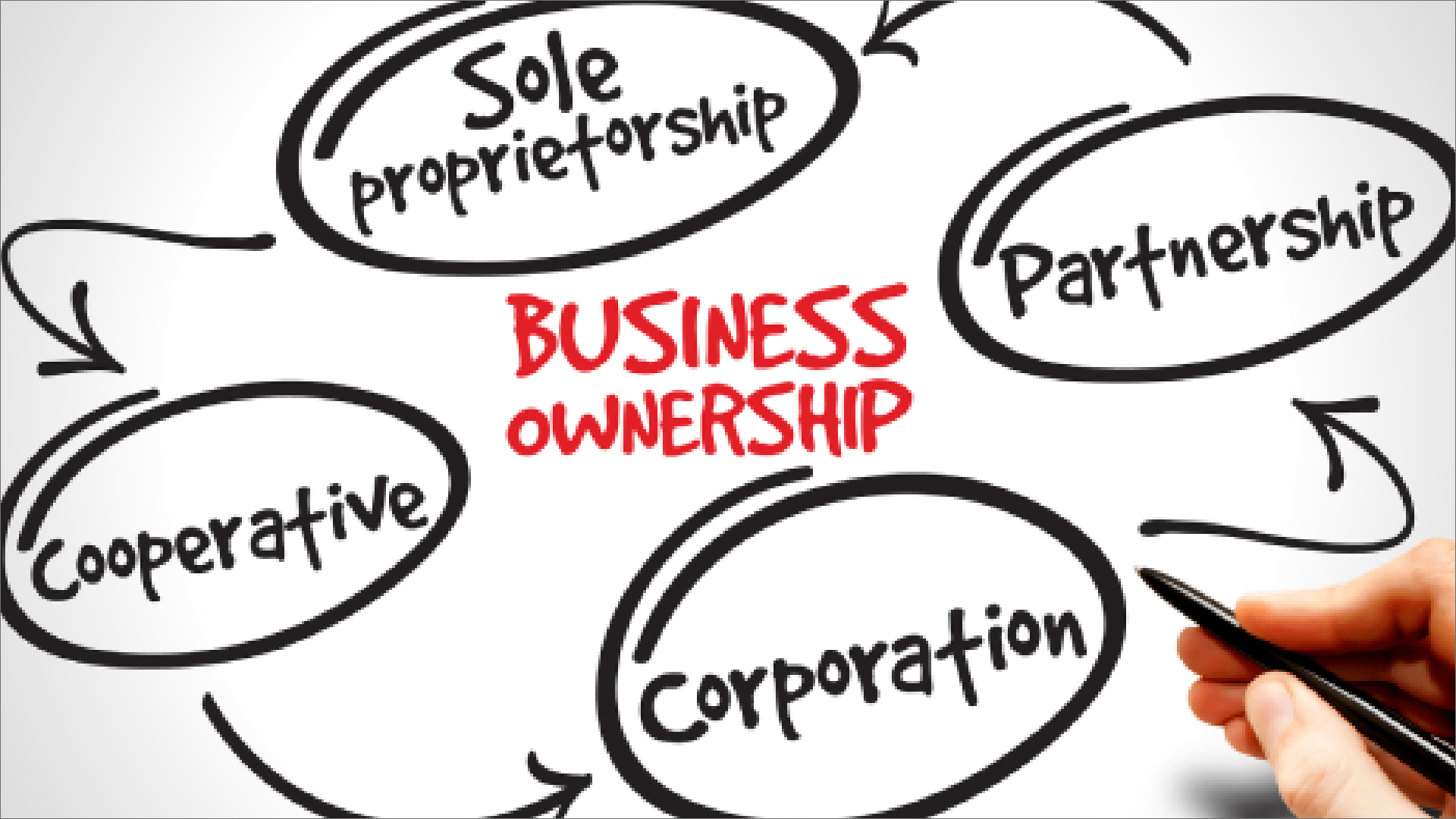What is Business? Explain Basic Concepts of Business
Running a successful business is not that easy. The world of startups is becoming rigorous now. The nerve-breaking competition will bring you down soon as you start. Most would-be entrepreneurs fail because they aren’t clear in their heads about what business is and why it exists.
Starting a business without the right knowledge can result in a great loss. It’s hard to succeed in the current business landscape. Sounds freaky? Not anymore. Because we will tell you a handful of business concepts, you must know. So, read this article.
Defining Business in Simple Terms
Business is a set of activities performed in exchanging value to achieve a goal. Each business has specific goals and outcomes. Business activities often involve creating and distributing a product or service that impacts people’s lives. In exchange for your product/service, you get some monetary or non-monetary benefits.
That’s the core idea behind every business. When we hear business, the first thing that flashes in our mind is profits, money, and earnings.
So, we can refer to the term business as an entity ( company, organization, or startup) running to earn profits. The profits don’t necessarily mean generating revenue. It can be a non-profit organization that gathers social, religious, or political benefits.
What is a Business Concept?
A business concept narrows the attention from what it is to why the business exists. It provides a complete blueprint for building a venture on a single idea.
Therefore, business ideas define business ethics, goals, services, and value proposition. Imagine you are stuck in a traffic jam on a busy road downtown. Suddenly, an idea strikes your mind to solve the road traffic issue.
That very idea can be a precursor to a full-fledged business. The genesis of ideas comes from problems you see in the real world. So, would-be business owners love solutions.
Here are some of the pre-requisites of a business concept:
- It must contain a value.
- It should solve some kind of problems.
- Your business model should resonate with it.
For instance, Amazon had the business idea to scale up the commerce industry to the internet. It solved the major connectivity problems of most people who couldn’t exchange goods overseas. Amazon develops all the relevant business strategies based on this business concept.
Forms of Business

Several business forms exist depending upon the number of employers and ownership rights. Starting a business isn’t just playing with ideas or setting up a website. Though both are important, you need to define what type of structure your business needs.
Defining the business structure is halfway on the road to success. You can keep your assets secure, be savvy on taxes, and add others as your business partners.
Thus, structuring your business gives your business a roadmap of how it works. In addition, your business type resonates with your goals and ideas. For example, if you have a business idea that doesn’t require a second owner in the company, you won’t need to register it as a corporation.
Still, confused about the types? Let’s have a look at four types of businesses.
1. Sole Proprietorship
Have you ever visited the local coffee shop near your house? It may not give you the experience and taste of Starbucks, but it’s still a business model.
Mostly, a single person owns and runs such shops in the neighborhood. Therefore, you can call it a sole proprietorship.
The thing that sets such a business apart from other types is the legal binding and taxes. As a sole proprietor, you aren’t separated from your business. It means your business has full liability on your assets.
2. Partnership
Two or more people agreeing on basic values to earn profits is called a partnership. In this kind of business, you and your partners get the percentage of profits decided among you.
Similarly, if the company loses, the partners have to bear them. Also, the corporate taxes gets divided among all partners.
3. Corporation
A typical corporation is run by a board of directors, also shareholders in the company’s common stock.
They define all business activities and set the goals for business; therefore, a corporation resembles a partnership. The only difference is that the stakeholders’ assets are separate from the corporation.
The corporation itself remains liable for the actions as well as the finance of the business.
4. LLC (Limited Liability Company)
LLC or a limited liability company contains a mix of corporation and partnership benefits. Therefore, it’s most popular among new business owners.
It avoids the heavy taxation benefit of a partnership and the limited liability of a corporation.
5 Basic Concepts of Business You Must Know

Every discipline has its terms and jargon. Without them, discipline doesn’t exist. Therefore, you need to know those foundational concepts to grasp the basics of it.
Similarly, if you want to be good at doing business, you must first put your steps into the learning phase.
Also, the rising competition in businesses requires the need to be good at complex handling and operations. How would you learn the nitty-gritty of business if you don’t know the basics of it?
Therefore, we decided to provide you with 5 concepts of business every aspiring business owner should know.
- Customer
If you want to know one secret to get your business on the right track, it’s your customers. The term is so obvious that most wanna-be entrepreneurs shy away from knowing its properly. Have you ever wondered why McDonald’s, Starbucks, and Coca-cola bring the best customer base? Why do their stores, outlets, and restaurants never get empty?
Let’s spill the beans! The answer is a simple yet powerful concept. They appeal to the emotions of buyers. And by emotions, what do we mean? It’s how they feel when they don’t get the needed product. It also tells why your product solves their problems.
So, to enter into the business, you need to research your customers thoroughly. It’s like developing a customer’s avatar that defines all demographic, psychometric, and emotional factors.
Without knowing your customers, you can’t imagine a breakthrough in your business, even if you have the best employees in the world.
- Supply and Demand Principle
It seems like a freaky concept. You need not be an economist to solve this riddle. Two types of people combine to form a business. On one side, some sell something. It can be anything that provides value, like a commodity or a service. You call them sellers as they are selling a product or service.
On the opposite side, some people purchase those services and products from sellers in exchange for money or value. We call them buyers or customers. Sellers and buyers combine to form a market where business takes place. So, both are the two sides of a balanced weight. If one side gets lowered, the balance disrupts, causing the market to fluctuate.
In simple terms, suppose you sell bread for $1 around a busy neighborhood. You are getting an incredible number of customers because the prices are low. So, the demand goes up.
On the other hand, What if you increase the prices to $100 per piece of bread? It won’t sell. Thus, the demand will plummet in the market.
The current petrol price hike is a perfect example. During Covid-19, people weren’t using their vehicles due to the lockdown. It reduced the demand for gas in the global market.
Soon as the lockdown ended and people returned to work, the oil prices rebounded to meet the excessive demand. People started using more fuel, and the supply couldn’t meet the demand. It caused the petrol prices to go sky high.
- Competitors

How many times have you gone to the market to buy a product of a certain brand but come out buying another brand product? Most people find better products than they have decided in their mind.
Today, we have a range of choices when buying a product or service. Thus, we take the best product that suits our demand. That’s due to competition.
What makes sellers compete against each other? Customers, every seller wants to get more customers than its competitors. Therefore, they take immense care in curating a product, making it more valuable than others, adding USPs, and decreasing its price.
Imagine a world without competition. You wouldn’t see any valuable product in the market. As you plan to start a business, you must know your competitors.
Once you discover your competitor’s product weakness, you can play on it to create a more robust product. On the flip side, you must find your competitive advantage. It can be anything that makes your product/service difficult to compete with.
- Return on Investments
If you ask for one metric that plays an active role in choosing and scaling up a business, then it’s none other than return on investments (ROI). It may include calculations, but you need not be a math’s geek to understand it. If we explain ROI simply, it would be “how well a business performed.”
It tells whether your investment becomes profitable or you end up in a loss. Choosing a business isn’t as simple as ABC. You must look for better options in such a competitive business landscape. Therefore, you should put your first step in the door with the right business analysis. For instance, you have three business options to put your money in. If you are worried about what to choose, you can find the best ROIs option.
The business that provides the best returns should be your choice. In addition, you can scale up your business or increase marketing budgets. You may do some simple maths to find returns on investments.
- Business Costs
Businesses have a simple formula: Cut your costs. Costs remain a double edge sword on your head. On the one hand, you have to squeeze them as much as possible. On the other hand, you must maintain a steady flow of money in your business because no costs mean no business. It’s a fact that most startups or small businesses have to face an enormous number of costs.
Fixed costs include the one-time costs that are part of capital investment. Similarly, the variable costs include transportation, supply chain, utility bills, contingency costs, and much more.
Even if you earn extraordinary revenues from your sales, it would mean nothing if your costs are greater than your sales. So, bear in mind, start savvy on your costs if you want to succeed in your business.
What is a Business Plan?

Every brick-and-mortar business needs a plan to work. You create a business plan when you combine your business idea with your business concepts and knowledge.
Documenting a business plan that includes all market research, competitor research, financial projections, and mission statement are critical for your business.
It can help you foresee how your business will perform in the future. Moreover, you can turn your business idea into a reality. Also, you can pick your business for investment with such a written plan.
Let’s find out in detail why creating a business plan is good.
- Attract Investors
Suppose you have an awesome business idea in your mind. But when you evaluate it, you are dismayed because you don’t have enough money to start your business.
To make that idea happen in the real world, you need investment from some investor. Nowadays, investors put their money into startups and small businesses when they believe they will earn ROIs.
How would you show that your business is profitable? Through a business plan, you can show your business’s ins and outs and how it proceeds when put into practice.
After evaluating your plan, they show interest in investing in your venture. Therefore, doing the right maths when creating a business plan is necessary.
- Evaluate Your Business
Do you know why so many business plans end up in the trash? Simply because their business isn’t feasible in the market. Having a business idea tells you nothing if you can’t see its potential drawbacks and benefits.
When you put down a trajectory of how you go to market, what are the common pitfalls in customer acquisition, and what will you do to avoid them? In addition, how can you pay your costs, and what are your goals after each year?
All these questions need to be addressed before starting a business. Therefore, you must evaluate your business.
Final Words
Business concepts are essential to know for every entrepreneur. Diving into the business market without knowing the ins and outs of it is useless. The results are often in the form of business failure.
That’s why we gathered major business concepts to let you know the foundational knowledge of the business.
Read More : How to Start a Business: A Startup Guide
Read More : Best Small Business Ideas in 2022
